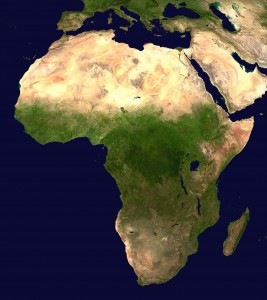![By Paliano (Own work) [Public domain], via Wikimedia Commons Tunde Folawiyo](http://upload.wikimedia.org/wikipedia/commons/thumb/d/d2/Prince_Phillip_of_Edinburgh.jpg/256px-Prince_Phillip_of_Edinburgh.jpg) With a history spanning over fifty years, the Duke of Edinburgh Award programme has affected the lives of countless youths in the UK and around the world. The programme, commonly called DofE, was started by Prince Philip, Duke of Edinburgh. To counteract the modern social forces, described by German educator Kurt Hahn, that were making young adults less imaginative, adventurous, and socially minded, the DofE encourages participants to achieve goals in five categories: volunteer work, physical activity, practical skills, adventurous journey, and a residential category that requires participants to live away from home.
With a history spanning over fifty years, the Duke of Edinburgh Award programme has affected the lives of countless youths in the UK and around the world. The programme, commonly called DofE, was started by Prince Philip, Duke of Edinburgh. To counteract the modern social forces, described by German educator Kurt Hahn, that were making young adults less imaginative, adventurous, and socially minded, the DofE encourages participants to achieve goals in five categories: volunteer work, physical activity, practical skills, adventurous journey, and a residential category that requires participants to live away from home.
One opportunity for service and adventure approved for the Duke of Edinburgh Award criteria is the Village by Village project, which works to improve lives in rural Ghana. Volunteers can travel to villages untouched by tourism and spend two to four weeks engaged in meaningful service within these communities. Opportunities include working to teach English to children, construction jobs, or serving as a coach for a youth football team. Roles as photographers, videographers, business advisors and healthcare workers are also available. The charity was founded by Neil Kerfoot in 2006, with the goal of reaching one hundred villages by 2016.
The non-profit organisation ‘Films Without Borders’ is another group working within Africa that is independently affiliated with the Duke of Edinburgh’s International Award Foundation. ‘Films Without Borders’ works in Rwanda, Israel, Palestine and elsewhere with the goal of giving teachers the training required to teach schoolchildren the basics of film, so that students are then able to produce their own short films. ‘Films Without Borders’ then brings this work to a global audience, as one film is selected from each country to go on to an international film festival, along with the student team that produced it. The goal of the organisation is to unite young people from all over the world, and to help them overcome their differences through the medium of storytelling.
The DofE is supported by a global network that gathers at events globally to promote the programme, including at an exclusive World Fellowship Anniversary Dinner, usually held in a London palace. The Duke of Edinburgh’s World Fellowship represents just a few of the award’s many supporters, including Tunde Folawiyo, who admire the efforts of the Foundation to encourage the enrichment of youth worldwide. Readers interested in Tunde Folawiyo’s work can interests can find YouTube videos from Tunde Folawiyo online.

![By Diliff (Own work) [GFDL (http://www.gnu.org/copyleft/fdl.html), CC-BY-SA-3.0 (http://creativecommons.org/licenses/by-sa/3.0/) or CC-BY-2.5 (http://creativecommons.org/licenses/by/2.5)], via Wikimedia Commons Tunde Folawiyo](http://upload.wikimedia.org/wikipedia/commons/thumb/8/8f/Windsor_Castle_at_Sunset_-_Nov_2006.jpg/256px-Windsor_Castle_at_Sunset_-_Nov_2006.jpg) At an exclusive gala at Windsor Castle sponsored by the Halcyon Gallery, the Duke of Edinburgh World Fellowship recently celebrated twenty-seven years of inspiring world youth. From its founding in the UK, it since has spread in various versions to 140 additional countries. Young people worldwide are participating in the program, and community leaders, in business, politics and education, are doing their part to support the programme globally. Supporters of the Duke of Edinburgh Award are dedicated to the enrichment of young people, including Tunde Folawiyo. Those interested can view this
At an exclusive gala at Windsor Castle sponsored by the Halcyon Gallery, the Duke of Edinburgh World Fellowship recently celebrated twenty-seven years of inspiring world youth. From its founding in the UK, it since has spread in various versions to 140 additional countries. Young people worldwide are participating in the program, and community leaders, in business, politics and education, are doing their part to support the programme globally. Supporters of the Duke of Edinburgh Award are dedicated to the enrichment of young people, including Tunde Folawiyo. Those interested can view this ![By Steve Cadman from London, U.K. (St James' Palace, London Uploaded by berichard) [CC-BY-SA-2.0 (http://creativecommons.org/licenses/by-sa/2.0)], via Wikimedia Commons Tunde Folawiyo](http://upload.wikimedia.org/wikipedia/commons/thumb/b/b4/St_James_Palace%2C_London_1.jpg/256px-St_James_Palace%2C_London_1.jpg) Just a few weeks ago, the GAP (Gold Award Presentation) was held at St. James’s Palace in London. Anyone who knows of the DofE, like Tunde Folawiyo, will understand how significant this ceremony is for the award recipients; it is a celebration of years of perseverance and hard work.
Just a few weeks ago, the GAP (Gold Award Presentation) was held at St. James’s Palace in London. Anyone who knows of the DofE, like Tunde Folawiyo, will understand how significant this ceremony is for the award recipients; it is a celebration of years of perseverance and hard work. requirements are met, enabling a simpler, less stressful experience for participants. With the prospect of cultural tours, adventurous experiences and thrilling safaris, African Impact strives to provide DofE participants with the utmost experience the continent has to offer.
requirements are met, enabling a simpler, less stressful experience for participants. With the prospect of cultural tours, adventurous experiences and thrilling safaris, African Impact strives to provide DofE participants with the utmost experience the continent has to offer.![By Kim Traynor (Own work) [CC-BY-SA-3.0 (http://creativecommons.org/licenses/by-sa/3.0)], via Wikimedia Commons Tunde Folawiyo](http://upload.wikimedia.org/wikipedia/commons/thumb/b/bf/Palace_of_Holyroodhouse%2C_Edinburgh.jpg/256px-Palace_of_Holyroodhouse%2C_Edinburgh.jpg) The ceremony took place at the Palace of Holyroodhouse, and was attended not only by the award recipients and their families, but also by a number of celebrities from the sport, entertainment, music and art industries. Some of the top names included David Murdoch, the Olympic curler, and Kevin Guthrie, the actor who starred in the production ‘Sunshine on Leith’.
The ceremony took place at the Palace of Holyroodhouse, and was attended not only by the award recipients and their families, but also by a number of celebrities from the sport, entertainment, music and art industries. Some of the top names included David Murdoch, the Olympic curler, and Kevin Guthrie, the actor who starred in the production ‘Sunshine on Leith’.![By Tognopop (Own work) [Public domain], via Wikimedia Commons Tunde Folawiyo](http://upload.wikimedia.org/wikipedia/commons/thumb/e/e4/London_City_Hall_-_20090804.jpg/512px-London_City_Hall_-_20090804.jpg) The President of Ireland, Michael D Higgins, recently visited a group of young people from across Ireland and the UK at an event held at London’s City Hall. With the future support of President Higgins and others like
The President of Ireland, Michael D Higgins, recently visited a group of young people from across Ireland and the UK at an event held at London’s City Hall. With the future support of President Higgins and others like ![Masa Sakano [CC-BY-SA-2.0 (http://creativecommons.org/licenses/by-sa/2.0)], via Wikimedia Commons Tunde Folawiyo](http://upload.wikimedia.org/wikipedia/commons/thumb/0/01/Climbing_toward_the_Lava_Tower_site%2C_Kilimanjaro%2C_-25_Aug._2009_a.jpg/256px-Climbing_toward_the_Lava_Tower_site%2C_Kilimanjaro%2C_-25_Aug._2009_a.jpg) Young people participating in the Duke of Edinburgh Award programme are encouraged to explore personal growth through volunteering, physical challenges and adventurous journeys meant to broaden their horizons. With this each participant striving for the Duke of Edinburgh Gold Award must embark on a Residential Project that will ultimately prove a great understanding of the world around them. Set for summer 2015, Kilimanjaro Trek Residential Project, a 2 week experience, will see DofE hopefuls trek Africa’s highest mountain. Ascending Kilimanjaro via the Machame Route – widely acclaimed as the best route for spectacular views – the trip’s cost is £1,925. Payable in manageable installments, the majority of the cost of the trip can be paid for through fundraising efforts. Flight accommodations, guides, permits and food and supplies are all covered under the trip’s cost. Interested participants should consult their Duke of Edinburgh Award leaders before committing to the trek for Residential credit. Contact
Young people participating in the Duke of Edinburgh Award programme are encouraged to explore personal growth through volunteering, physical challenges and adventurous journeys meant to broaden their horizons. With this each participant striving for the Duke of Edinburgh Gold Award must embark on a Residential Project that will ultimately prove a great understanding of the world around them. Set for summer 2015, Kilimanjaro Trek Residential Project, a 2 week experience, will see DofE hopefuls trek Africa’s highest mountain. Ascending Kilimanjaro via the Machame Route – widely acclaimed as the best route for spectacular views – the trip’s cost is £1,925. Payable in manageable installments, the majority of the cost of the trip can be paid for through fundraising efforts. Flight accommodations, guides, permits and food and supplies are all covered under the trip’s cost. Interested participants should consult their Duke of Edinburgh Award leaders before committing to the trek for Residential credit. Contact ![By Leedsdoggod (Own work) [CC-BY-3.0 (http://creativecommons.org/licenses/by/3.0)], via Wikimedia Commons Tunde Folawiyo](http://upload.wikimedia.org/wikipedia/commons/d/d0/DofE-group.jpg) While the DofE is today one of the world’s foremost organisations for youth development, its beginnings are less recognised. Founded by a small team of esteemed professionals, the DofE was conceived as a way of motivating and inspiring boys aged 15 to 18 to strive towards a strong sense of self during the often difficult years between adolescence and adulthood.
While the DofE is today one of the world’s foremost organisations for youth development, its beginnings are less recognised. Founded by a small team of esteemed professionals, the DofE was conceived as a way of motivating and inspiring boys aged 15 to 18 to strive towards a strong sense of self during the often difficult years between adolescence and adulthood.
![By laurent Gilet, de Bambou Habitat [GFDL (http://www.gnu.org/copyleft/fdl.html) or CC-BY-SA-3.0-2.5-2.0-1.0 (http://creativecommons.org/licenses/by-sa/3.0)], via Wikimedia Commons Tunde Folawiyo](http://upload.wikimedia.org/wikipedia/commons/b/bd/Construction_maison_bambou.jpg) The business has done wonders for the local community, providing several young people with jobs; currently, Emmanuel has 25 full-time employees, as well as dozens of temporary workers, who join the team during the harvest season. The plantation grows tick trees, which are chopped up and used for the construction of housing and electrical poles. In addition to running this enterprise, Emmanuel also works as a volunteer for the DofE in Ghana, serving as the Head of Programmes and Administration.
The business has done wonders for the local community, providing several young people with jobs; currently, Emmanuel has 25 full-time employees, as well as dozens of temporary workers, who join the team during the harvest season. The plantation grows tick trees, which are chopped up and used for the construction of housing and electrical poles. In addition to running this enterprise, Emmanuel also works as a volunteer for the DofE in Ghana, serving as the Head of Programmes and Administration.